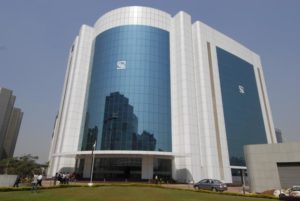 The first session of the GST Council that concluded here on Friday made good progress in ironing out some of the contentious issues between the Centre and states: The exemption threshold for the goods and services tax (GST) has been fixed at Rs 20 lakh for all states except the northeastern ones and the three hill states of Jammu and Kashmir, Uttarakhand and Himachal Pradesh, in whose case this limit would be Rs 10 lakh; states will have the assessment powers for units with annual turnover up to Rs 1.5 crore while in the case of bigger businesses too, the one-taxpayer-one-authority principle will be retained and either the Centre or the state concerned will be accorded the assessing power based on risk profiling.
The first session of the GST Council that concluded here on Friday made good progress in ironing out some of the contentious issues between the Centre and states: The exemption threshold for the goods and services tax (GST) has been fixed at Rs 20 lakh for all states except the northeastern ones and the three hill states of Jammu and Kashmir, Uttarakhand and Himachal Pradesh, in whose case this limit would be Rs 10 lakh; states will have the assessment powers for units with annual turnover up to Rs 1.5 crore while in the case of bigger businesses too, the one-taxpayer-one-authority principle will be retained and either the Centre or the state concerned will be accorded the assessing power based on risk profiling.
Importantly, the Centre agreed to the states’ demand for including the proceeds from sundry cesses levied by them in the definition of “revenue”, a step that could increase its compensation payouts. This would also mean that the states would cease to levy the cesses, the proceeds from which stood at close to Rs 40,000 crore in FY16.
The council decided to take 2015-16 as the base year to compute compensation to states for any future revenue loss, but left open the question of projecting the business-as-usual rate of increase in revenue, crucial for quantifying compensation. Finance minister Arun Jaitley said three options were under consideration for projecting the revenue growth rate: A mutually agreed-upon fixed rate; the average of the three best (high-growth) years in the past five years; and the average of median three of the last five years. States had earlier turned down the Centre’s proposal for taking the average of the last three years for projecting future revenue growth, saying these years haven’t been particularly good due to the economic slowdown.
Jaitley said the Centre will continue to assess the 11 lakh service tax assessees (even those below Rs 1.5 crore) but added that states will be given training to assess them and once they acquire competence, the future addition to this taxpayer base will be shared with them for the purpose of assessment.
Regardless of whether the Centre or the state has control on an assessee, the tax proceeds will be shared between the two — the central GST component will go to the Centre and the states will appropriate the state GST, which could be slightly higher than central GST. As far as integrated GST — to be levied on interstate transactions and imports — is concerned, the place of supply rules will decide who the appropriating authority will be; of course, the basic principle is that tax needs to be paid where the consumption takes place.
The council, Jaitley said, would meet again on September 30 to finalise the draft rules on the council’s functioning and the exemption thresholds and decide how the grandfathering of tax sops (like the area-based excise exemptions) will be carried out. The crucial question of the GST slab structure, the revenue-neutral rate (RNR) and actual GST rates would be discussed by the council between October 17 and 19. The Arvind Subramanian panel that had estimated a RNR of 15-15.5% had said if the standard rate is 17%, it could comprise central GST of 8% and state GST of 9%.
Tax experts welcomed the outcome of the first meeting of the council. Harishanker Subramaniam, national leader, indirect tax, EY India, said: “It is interesting is that for GST on services, the Centre will have administrative control irrespective of threshold at least in the initial years till states are trained to handle services. This may be a good news for industry as many were worried as to how states will handle complexity of services.”
According to Pratik P Jain, leader, indirect tax, PwC India, enhancing the annual turnover for exemption to Rs 20 lakh from Rs 10 lakh contemplated earlier would be administratively easier for the government as several small businesses would be out of the GST ambit. “Industry would also welcome the move to have a single assessing authority, instead of having a dual system of assessment and scrutiny, which was a major concern for businesses,” he said.
Source: http://www.financialexpress.com/economy/threshold-for-gst-fixed-at-rs-20-lakh/389350/





